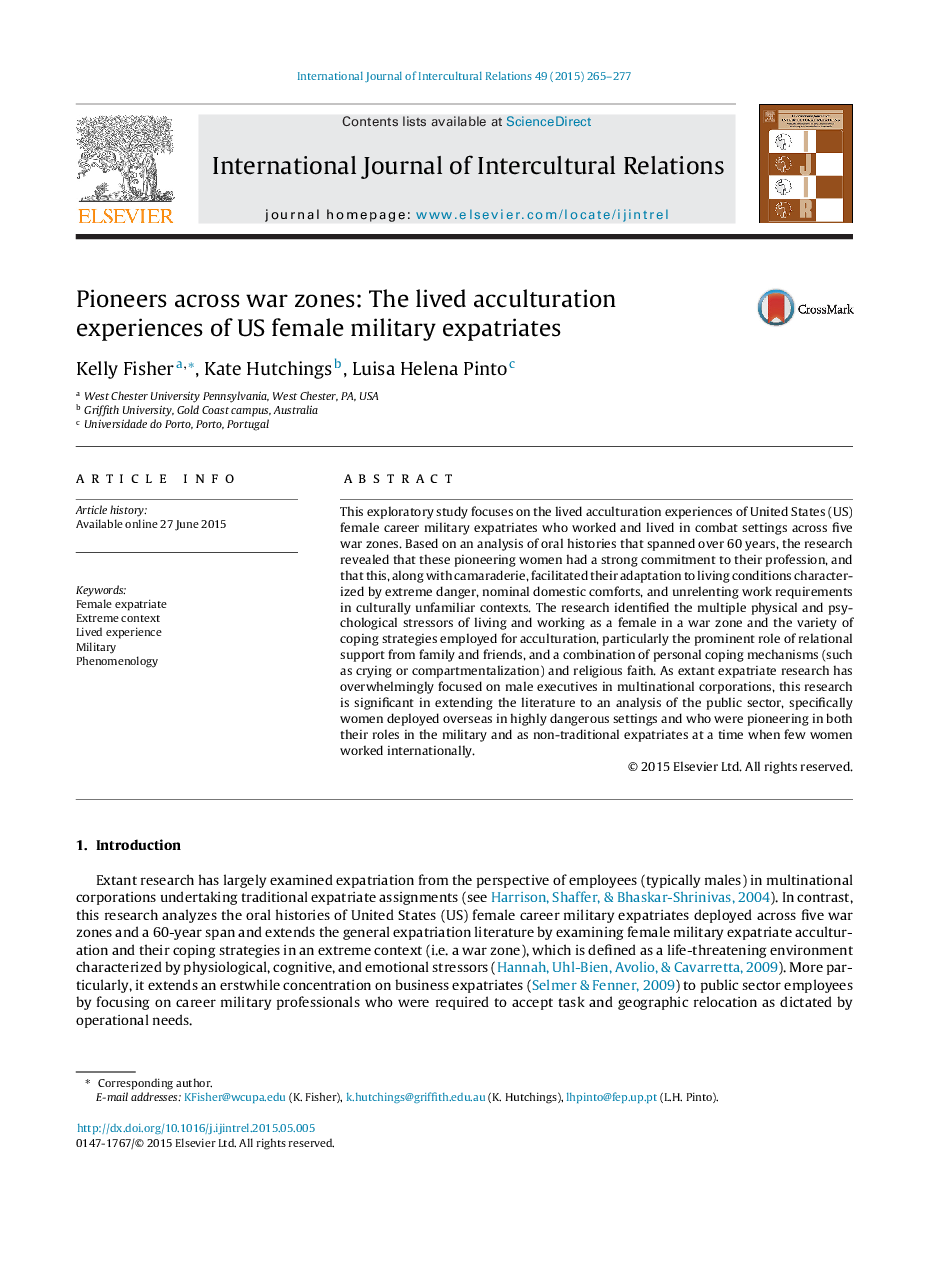| Article ID | Journal | Published Year | Pages | File Type |
|---|---|---|---|---|
| 7323789 | International Journal of Intercultural Relations | 2015 | 13 Pages |
Abstract
This exploratory study focuses on the lived acculturation experiences of United States (US) female career military expatriates who worked and lived in combat settings across five war zones. Based on an analysis of oral histories that spanned over 60 years, the research revealed that these pioneering women had a strong commitment to their profession, and that this, along with camaraderie, facilitated their adaptation to living conditions characterized by extreme danger, nominal domestic comforts, and unrelenting work requirements in culturally unfamiliar contexts. The research identified the multiple physical and psychological stressors of living and working as a female in a war zone and the variety of coping strategies employed for acculturation, particularly the prominent role of relational support from family and friends, and a combination of personal coping mechanisms (such as crying or compartmentalization) and religious faith. As extant expatriate research has overwhelmingly focused on male executives in multinational corporations, this research is significant in extending the literature to an analysis of the public sector, specifically women deployed overseas in highly dangerous settings and who were pioneering in both their roles in the military and as non-traditional expatriates at a time when few women worked internationally.
Related Topics
Social Sciences and Humanities
Business, Management and Accounting
Business and International Management
Authors
Kelly Fisher, Kate Hutchings, Luisa Helena Pinto,
